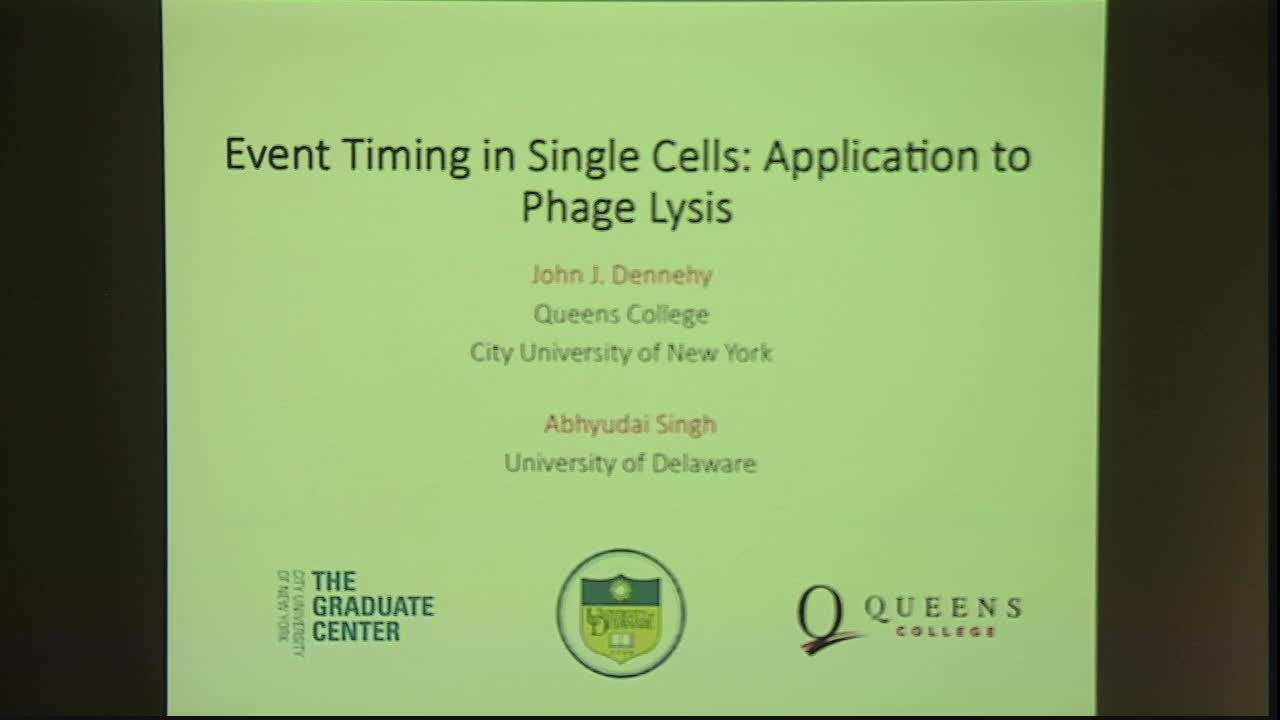Modeling Timing Phenomena in Single-cells: From Phage-induced Lysis to Cell-Division Events
Presenter
November 20, 2015
Keywords:
- stochastic, lysis time, cell-division
MSC:
- 92C37
Abstract
The inherent stochastic nature of biochemical processes can drive differences in gene expression between otherwise identical cells. While cell-to-cell variability in gene expression has received much attention, randomness in timing of events has been less studied. We investigate event timing at the single-cell level in a simple system, the lytic pathway of the bacterial virus phage lambda. Data reveals precision in timing: lysis occurs on average at 65 min with a standard deviation of 3.5 min. Interestingly, mutations in the lysis protein, holin, alter both the lysis time (LT) mean and variance. Mathematically, LT is formulated as the first-passage time (FPT) for cellular holin levels to cross a critical threshold. Exact analytical formulae for the FPT moments are derived for stochastic gene expression models. These formulae reveal how holin transcription and translation efficiencies independently modulate the LT mean and variation. Single-cell LT data for lambda phages with mutations in the holin sequence or its promoter are shown to be consistent with analytical predictions. Our analysis also reveals an incoherent feedforward circuit for buffering random variation in lysis timing. Finally, we discuss how other timing events, such as cell-division time of individual E. coli. cells can be modeled as a first-passage time problem.
